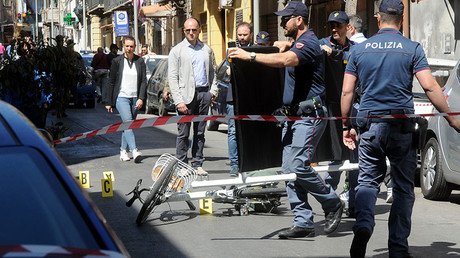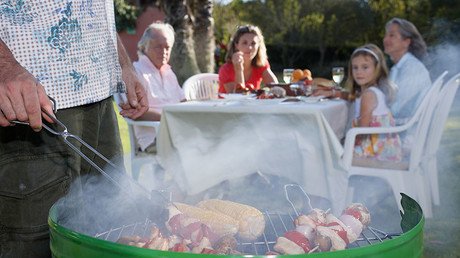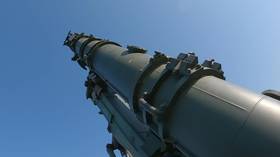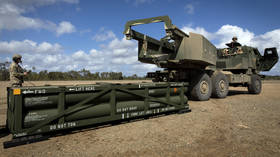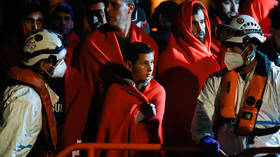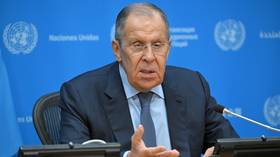Mafia & migrant gang violently forcing refugees to sell drugs in Sicily
The Italian mafia is taking advantage of vulnerable refugees arriving in Sicily, teaming up with a migrant gang to force newcomers to sell drugs. Refusing to do so can result in violent consequences, one victim told RT.
Sicily is a hot spot for refugees crossing the Mediterranean Sea from Africa, with many ending up in the picturesque port city of Palermo.
Tourists and locals flock to the city's bustling Ballaro market every day, snapping photos of colorful produce stands and freshly caught fish. However, when the sun sets and the vendors go home for the night, the market takes a dark turn.
"There is very powerful trafficking of heroin, marijuana and other kinds of drugs [at the market]," local journalist Francesco Bellina told RT's Charlotte Dubenskij.
Although the Italian mafia is controlling the operation behind the scenes, the faces of the operation are mostly refugees.
"Mafia bosses need to use somebody for selling drugs, so in this case, in this period, they are using also migrants, specifically Nigerian migrants," Bellina said.
The mafia is teaming up with a migrant gang known as 'Black Axe,' which is forcing new arrivals to work for the operation.
Nigerian migrant Don Emeka found out that saying "no" to Black Axe can result in serious consequences.
"They told me I should join them for violence in Palermo. I told them I don't live that kind of life," he told RT.
That response triggered violence from the gang’s recruiters.
"They put their hands in my pockets and took my phone and my glasses. Another guy took a bottle and hit my head. From there they used it to cut my arm," Emeka said, showing his deep scars to RT's camera crew.
However, selling drugs isn't the only fate faced by migrants in Palermo. Many teenage girls are also selling their bodies, feeling they have no other choice.
"When a [refugee] camp works bad and it doesn't offer to the migrants the normal service like water, like shower gel, like food, then often people inside these camps, mostly minors, go outside to be prostitutes," Bellina said.
"I think there is a very strong connection between the condition in the camps and the use of these migrants. Because where there is poverty, [the] mafia and all kinds of crime organizations can work," he continued.
The mafia has also been exerting its influence on at least one migrant camp, with police announcing in May that 68 people including a local priest had been arrested in Calabria, in a scheme which saw the Arena mafia clan pocket millions from the Italian government over the course of a decade.
Almost 84,000 migrants have reached Italy by sea since January, according to the UN. Some reports have suggested that number could reach 200,000 by the end of the year.
Meanwhile, Italy continues to ask for help from other EU member states, with Interior Minister Marco Minniti saying the country is "under enormous pressure” from the migrant crisis.
Italy has also threatened to close its ports to ships rescuing migrants from the Mediterranean.
"If the only ports refugees are taken to are Italian, something is not working," Minniti said on Sunday.
